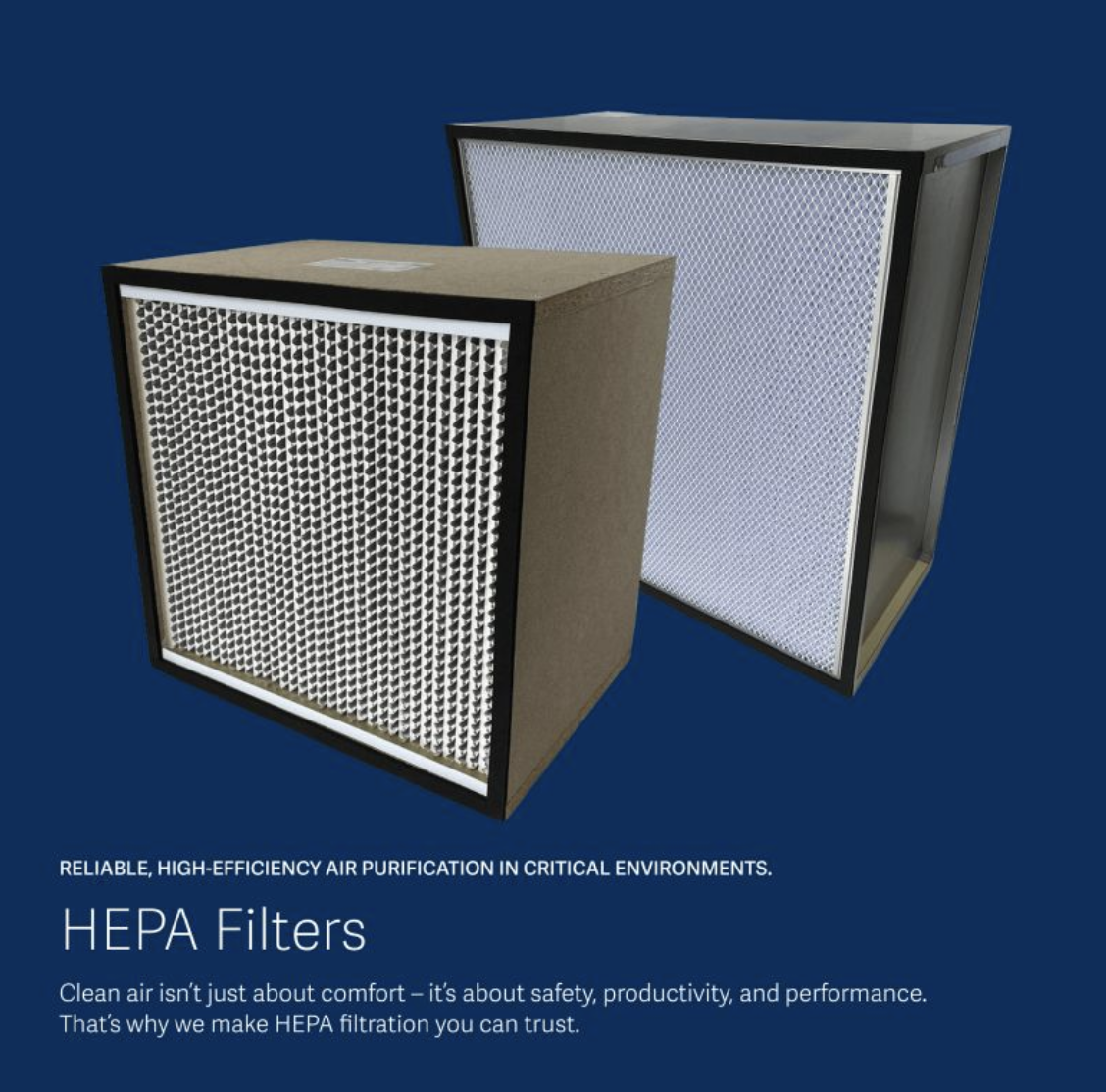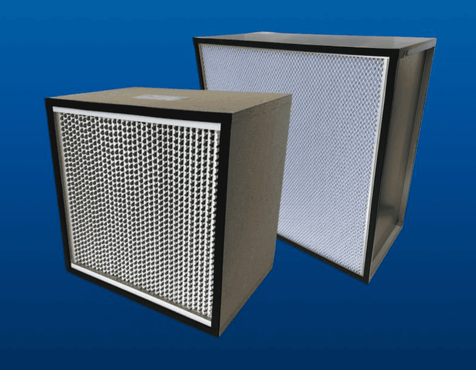Posted by Spycor LLC on Aug 19th 2025

Clean air is essential for health and comfort, whether you’re at home, on a construction site, or in a commercial space. HEPA filters are a powerful solution for removing dust, allergens, and pollutants from the air. This guide explains what HEPA filters area and their benefits. Discover how our high-performance filters can transform your environment and improve your well-being.
What Is a HEPA Filter, and How Does It Work?
HEPA stands for High-Efficiency Particulate Air, a standard that ensures filters capture at least 99.97% of particles as small as 0.3 microns, such as dust, pollen, pet dander, and mold spores. These filters use a dense mesh of fibers, typically glass microfiber, to trap contaminants through interception, impaction, and diffusion. This makes them ideal for dusty environments like construction sites, cleanrooms, or homes with pets or allergies.
Spycor Environmental offers HEPA filters in metal or particle board frames, designed for applications ranging from industrial air scrubbers to home air purifiers. Check out our selection from trusted brands like Glasfloss, Koch Filter, and Omnitec at Spycor.com to find the right filter for your needs.
Benefits of HEPA Filters from Spycor Environmental
Spycor’s HEPA filters deliver exceptional air quality improvements:
- Highly Effective Particle Removal: Capture 99.97% to 99.99% of 0.3-micron particles, ensuring cleaner air for homes, workplaces, or equipment.
- Versatile Applications: Perfect for negative air machines, air scrubbers, and purifiers used in construction, medical facilities, or residential settings.
- Durable Construction: Choose metal frames for damp environments to prevent microbial growth or cost-effective particle board frames for dry conditions.
- Allergy Relief: Reduce allergens like dust mites, pollen, and pet dander, easing symptoms for asthma and allergy sufferers.
- Regulatory Compliance: Meet ASME standards for 99.97% filtration and OSHA/CDC guidelines for workplace safety.
HEPA-Type vs. HEPA Filters: What’s the Difference?
Not all filters labeled “HEPA” are equal. HEPA-type filters may capture larger particles like dust or lint but don’t meet the strict 99.97% efficiency standard for 0.3-micron particles. Spycor Environmental’s HEPA filters, such as the Glasfloss Magna Series, achieve 99.97% to 99.999% efficiency, making them ideal for demanding settings like hospitals, cleanrooms, or construction sites.
Are HVAC Filters Enough Compared to HEPA?
Standard HVAC filters, typically rated MERV 8–13, capture larger particles but can’t match HEPA’s 99.97% efficiency for 0.3-micron particles. Using HEPA filters directly in HVAC systems may increase airflow resistance, reducing efficiency. Instead, Spycor recommends pairing your HVAC setup with HEPA filters in portable air purifiers or negative air machines for targeted filtration in high-risk areas like construction sites or medical facilities.
Choosing the Right HEPA Filter for Your Needs
Spycor Environmental offers a variety of HEPA filters tailored to specific applications:
- Metal Frame HEPA Filters: Built with 18-gauge galvanized steel for damp environments like hospitals, preventing corrosion and microbial growth.
- Particle Board Frame HEPA Filters: Budget-friendly for dry settings like homes or construction sites.
- Standard vs. High-Capacity: High-capacity filters excel in heavy dust environments, ideal for industrial use.
- Custom Sizes: Designed to fit your air purifier or negative air machine perfectly.
Maintenance Tips for HEPA Filters
Keep your HEPA filter performing at its best with these tips:
- Replace every 6–12 months, depending on usage and dust levels.
- Use pre-filters to trap larger particles and extend HEPA filter life.
- Check regularly for clogs or reduced airflow.
- Store spare filters in a clean, dry area to maintain quality.

FAQ: Your HEPA Filter Questions Answered
What does HEPA stand for?
HEPA stands for High-Efficiency Particulate Air, capturing 99.97% or more of 0.3-micron particles.
Can HEPA filters help with allergies?
Yes, they trap allergens like dust mites, pollen, and pet dander, reducing symptoms for allergy sufferers.
Are metal frame HEPA filters better than particle board ones?
Metal frames are ideal for damp environments to prevent microbial growth, while particle board frames are cost-effective for dry settings.
How do HEPA filters compare to MERV filters?
HEPA filters capture 99.97% of 0.3-micron particles, far surpassing MERV 13–16 filters (75–95% efficiency).
Are HEPA filters suitable for construction sites?
Yes, Spycor’s HEPA filters excel at trapping silica dust and debris, ensuring safer job site air quality.
How often should I replace my HEPA filter?
Every 6–12 months, depending on your environment and usage. Check Spycor’s guidelines for your specific filter.
Ready to breathe cleaner air? Shop at Spycor’s HEPA filters HERE to create a healthier, cleaner environment with reliable filtration.



